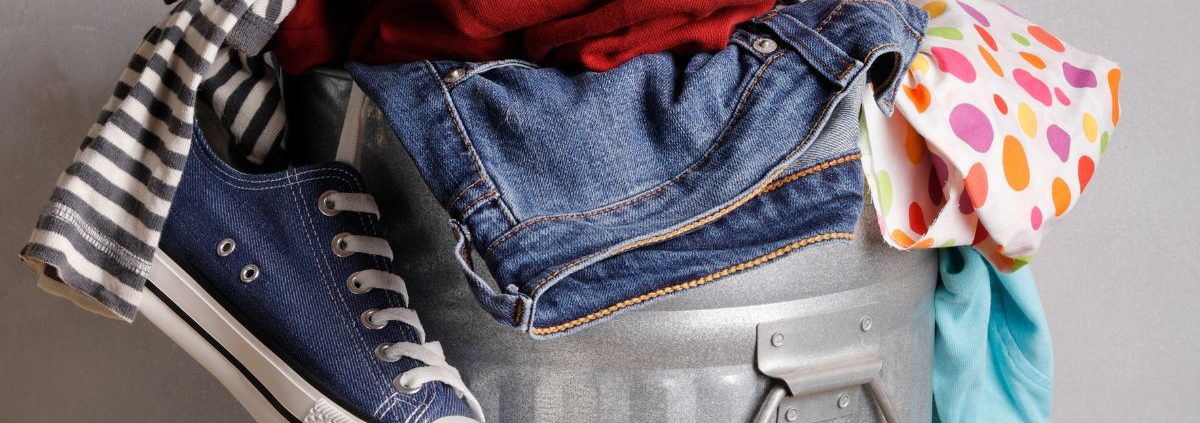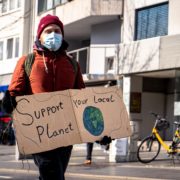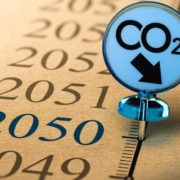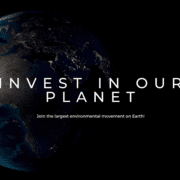Fashion to die for
I love Paul Polman and I don’t care who knows it.
‘Who’s he when he’s at home,’ you ask? Polman is the former CEO of Unilever who transitioned that mammoth brand from its ‘extractive business as usual’ model to a company that is now a role model for sustainable business. And guess what? In doing so he made it more profitable than ever. [Repeat after me: ‘Going green pays’.]
Since leaving Unilever, Paul [if I may be so familiar] has become a tireless campaigner for sustainable business. His latest book is Net Positive: how courageous companies thrive by giving more than they take.
But I digress. My love and admiration for Paul Polman is not the purpose of this post. My purpose is to draw attention to his recent article called ‘Fashion as a Force for Good?’ Because our lives depend on it.
Who knew something as frilly, frivolous and fun as fashion could be a key driver in humanity bringing about our own demise. It gives a whole new meaning to the phrase ‘oh that dress is to die for’. Because it really is. In fact, chances are someone in a far-off corner of a developing country already has.
As Paul points out, the fashion industry produces around 10 percent of global carbon emissions and, based on current trends, these could surge. If the whole world stopped making clothes today, there are already enough garments in the world to clothe the next six generations. I mean, WTF? Who signed that off?
Fashion is responsible for staggering water consumption, soil destruction, ocean pollution and landfill, and human rights violations affect vulnerable workers throughout the value chain.
We are swimming in unwanted clothing. The Ellen MacArthur Foundation estimates that a bin lorry full of used clothing is landfilled or burned every second. Every single second. That’s three truckloads in the time you took to read this sentence.
Less than 2% of the clothes, shoes and accessories produced every year are recycled into new fashion; most that are recycled are ‘downcycled’ into products such as cushion stuffing and insulation.
REASONS TO BE CHEERFUL
Here’s the thing though. We cannot despair. Despair is another form of delay and time is already in short supply. It’s precisely because fashion has an outsize impact on people and planet that we must work together to transform it. [That’s a quote from Paul, just FYI.]
And thankfully there is plenty of reason to be hopeful! Many fashion companies are undoubtedly raising their game.
- Fashion giant Patagonia has partnered with social impact companies to launch a new clothing repair centre in London that will provide jobs for those with challenges to finding employment and train them on circular economy methods.
- Chloé is the first big luxury brand to become a certified B Corp.
- Both Kering and H&M Group are committed to reducing absolute emissions, rather than a relative figure, where gains are quickly wiped out by growth. Both also include so-called ‘Scope 3’, meaning emissions the companies are indirectly responsible for in their value chains.
- Inditex aims to get most of its raw materials from sustainable sources within the next two years.
- Aigle wants to enable people to experience nature “without leaving any impact except their footprints.”
But we need bigger change and we need it faster.
THE FASHION PACT
“Whether you’re Gucci, LVMH or Primark, you all need low- impact materials, like leather which doesn’t cost the Amazon rainforest, and cotton which doesn’t worsen water scarcity, pesticide pollution and global warming. You all need effective recycling systems, instead of relying on landfill,” writes Paul.
“This is why, with Kering’s François-Henri Pinault and myself as founders, we set up The Fashion Pact: a coalition of more than 60 CEOs and 160 brands, representing a third of the global industry, and including ready-to-wear, sports, lifestyle and luxury sectors. The idea is that by taking joint action on climate, ocean pollution and biodiversity, a critical mass of leaders can drive industry-wide reform.
“All members are committed to creating a “net-zero and nature positive” fashion industry.”
“Every Fashion Pact member knows they need to get off fossil fuels. It won’t happen quickly enough if everybody chips away at the problem on their own. So, in a first for the industry, a dozen members are jointly investing in a solar facility in Spain to add much-needed clean energy onto the grid. They’re setting a precedent for fashion, and more joint energy buying will follow.
“Another example: Members are designing a system of carbon credits to help farmers shift to regenerative practices and produce lower-impact cotton. It’s being piloted with hundreds of farmers in India and the US. If the market mechanism works, 25 brands are lined up to adopt it.
“Seventeen have engaged in a joint R&D project to develop a paper alternative to plastic polybags used to transport garments. Led by Chanel and Kering, companies who produce mainly in Europe, are joining forces to help their suppliers decarbonize. High-volume players in Asia are doing similar. And we’ve developed practical tools all fashion businesses need in order to rethink their relationship to nature, and to support biodiversity rather than destroy it.”
That was a big chunk of quoting straight from Paul’s article. To read his full article in Women’s Wear Daily, go to https://wwd.com/sustainability/environment/fashion-sustainability-pollution-pact-polman-unilever-1235891362/
Become a B Corp
Are you more convinced that B Corp is right for you? Would you like to join the B Corp companies using business as a force for good? Here at Grow Good, we exist to coach people through the process of becoming B Corp certified.
The B Corp Impact Assessment framework is free to access and provides dozens of useful insights and opportunities for any business but it can be confusing and overwhelming.
We are consultants who have completed the official training provided by B Lab, the organisation that runs the B Corp certification programme. We live, breathe and sleep B Corp. We are your friendly B Corp buddies. We make it easier. We translate the questions into plain English and give you a host of template policies and example documents so you don’t have to start everything from scratch or reinvent the wheel. We show you how to unlock the big point scoring areas most relevant to your business.
Are you ready to go B Corp? It’s completely your decision but if you are, and if you think it would be helpful to have a guiding hand through the process, we’re here to help. Drop us a line or jump straight in and book a free call here.
Yours in purpose,
Kia kaha,
Tamara







